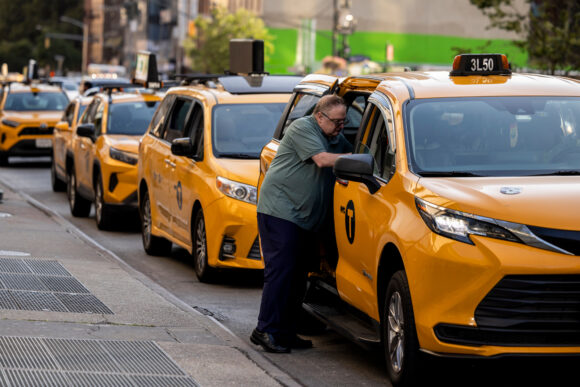
New York City has decided to roll back a proposed regulation that would have required NYC Taxi and rideshare drivers to be insured by a “solvent and responsible” provider. The shift comes after Uber Technologies Inc. warned that the mandate could leave thousands of drivers without coverage.
The Taxi and Limousine Commission (TLC), which oversees for-hire vehicles in the city, has now adjusted the rule to require that insurance policies simply be “issued by companies authorized to do business” in New York state. This change removes the burden on vehicle owners to assess the financial stability of their insurance carriers, according to an updated version of the rule posted on the agency’s website.
The TLC’s board of commissioners is set to vote on the final version of the regulation on Wednesday. If approved, the changes will take effect on January 1, 2026.
City and state officials, including Governor Kathy Hochul, have been working to stabilize the NYC Taxi and for-hire vehicle insurance market following reports that American Transit Insurance Co. (ATIC)—which insures approximately 60% of New York City’s 120,000 for-hire vehicles—is insolvent. The company posted over $700 million in net losses in the second quarter of 2024 but continues to operate in the state, despite ongoing complaints regarding delays in claim payments.
Uber had raised concerns about the TLC’s initial plan, arguing that the vague definitions of “solvent” and “responsible” could further disrupt an already fragile insurance market. In response, the agency revised the language, stating that the updated rule would offer more flexibility to TLC-licensed vehicle owners while still ensuring state-level oversight of insurance carriers. The change was made after an internal review and public input from multiple stakeholders, including ATIC’s legal representatives.
Additionally, the TLC is easing restrictions on the use of supplementary insurance policies to meet minimum coverage requirements. Under the finalized rule, split coverage will be permitted as long as all policies come from carriers authorized to operate in New York.
However, the regulator rejected Uber’s request to allow supplementary coverage from non-state licensed insurers, stating that such policies do not offer the same level of consumer protection. This decision could impact Uber’s insurance partner, Inshur Inc., which is not licensed in New York but insures over 7% of NYC Taxi and TLC-licensed vehicles through its partnership with the licensed Accident Fund Insurance Co.






